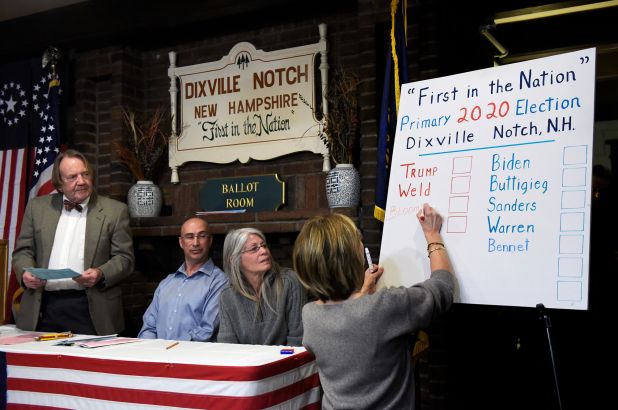In Review: New Hampshire Primary
February 12, 2020
When the results surfaced for the New Hampshire primary at about 8:00 p.m. EST, Bernie Sanders was the projected winner at 25.9%, Pete Buttigieg at 24.4%, Amy Klobuchar at 19.7%, Elizabeth Warren at 9.3%, and Joe Biden at 8.4%. The results were a sign that this year’s election could turn out to be one of the most difficult ones to predict yet. As the New Hampshire primary has just concluded, it is important to take a moment to recognize its importance in our nation’s electoral process, both historically and systematically.
Much like the Iowa caucus on Feb. 3 (which was narrowly won by Buttigieg), the Granite state boasts its own unique set of rules and impact on candidates running for the presidency. Furthermore, being the second electoral event in the presidential process, New Hampshire serves as an important stage in the primaries.
Although New Hampshire only has 24 national delegates, the primary inarguably has the eye of the media on it and as such, the potential to identify early frontrunners. While New Hampshire hasn’t always predicted the outcome of the general election, “the incremental campaigns for the nominations are all about perception of momentum, and a national frontrunner can be dislodged by a poor performance early on,” says The Conversation. To truly understand what impact the New Hampshire primary has on the race for the presidency, one must first understand how it works, and who’s involved.
According to NBC News, state law in New Hampshire requires that the secretary of state, Bill Gardner, pick a date for the New Hampshire residential primary “at least one week ahead of any other ‘similar election’.” Other than holding the first primary in the nation, what makes New Hampshire different from other states is that “undeclared” voters are allowed to vote in a state or presidential primary. This acts as a key component in the state, because according to the secretary of state’s office, there were 413,345 undeclared voters as of October 2019. That’s roughly 100,000 more voters than both the Democratic and Republican parties.
In the upcoming presidential election, there are a number of candidates running in the Democratic primaries. In order, the leading candidates from the Democratic party are: Sanders, Buttigieg, Klobuchar, Warren, and Biden. Incumbent President Donald Trump is the candidate to beat on the Republican side. Democratic candidate Michael Bloomberg has decided not to run in the early primaries as he hopes it will make him a more desirable choice later on.
Photo courtesy of NYPOST.COM

